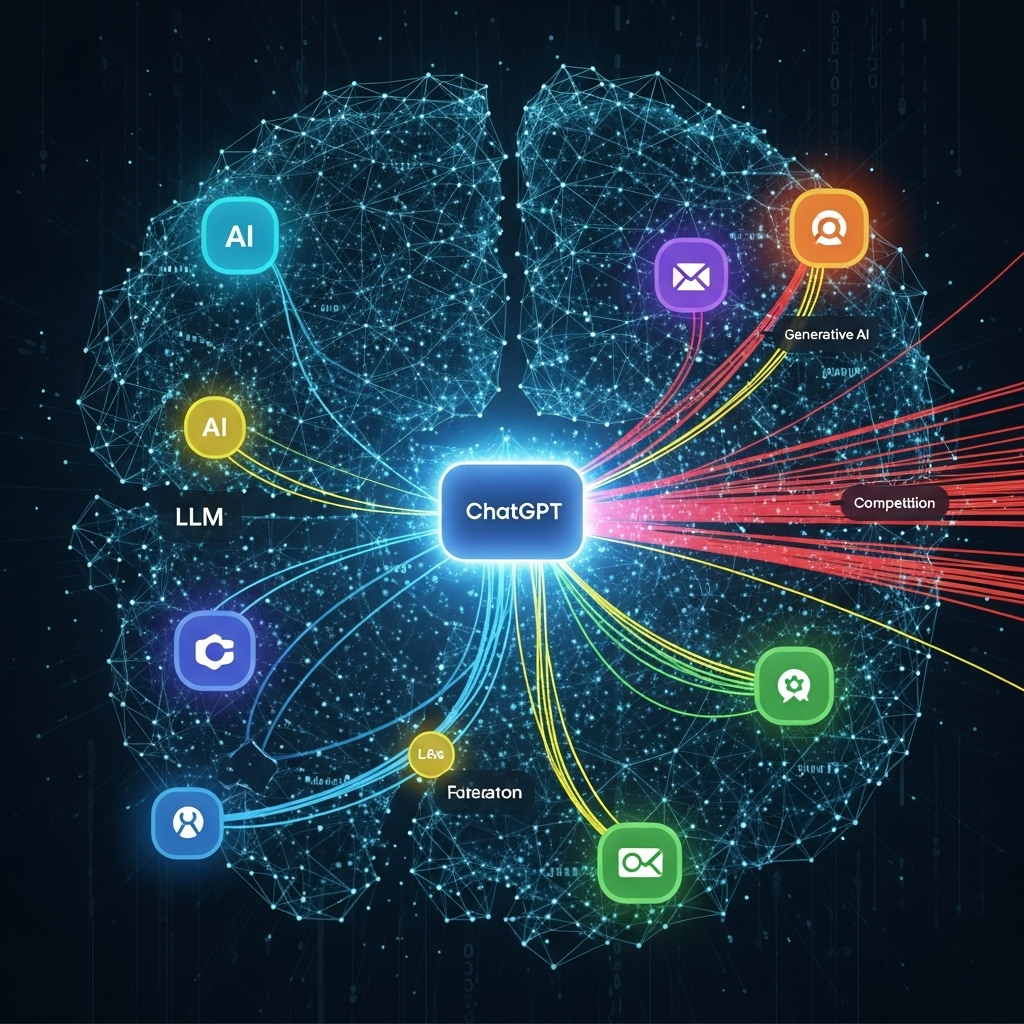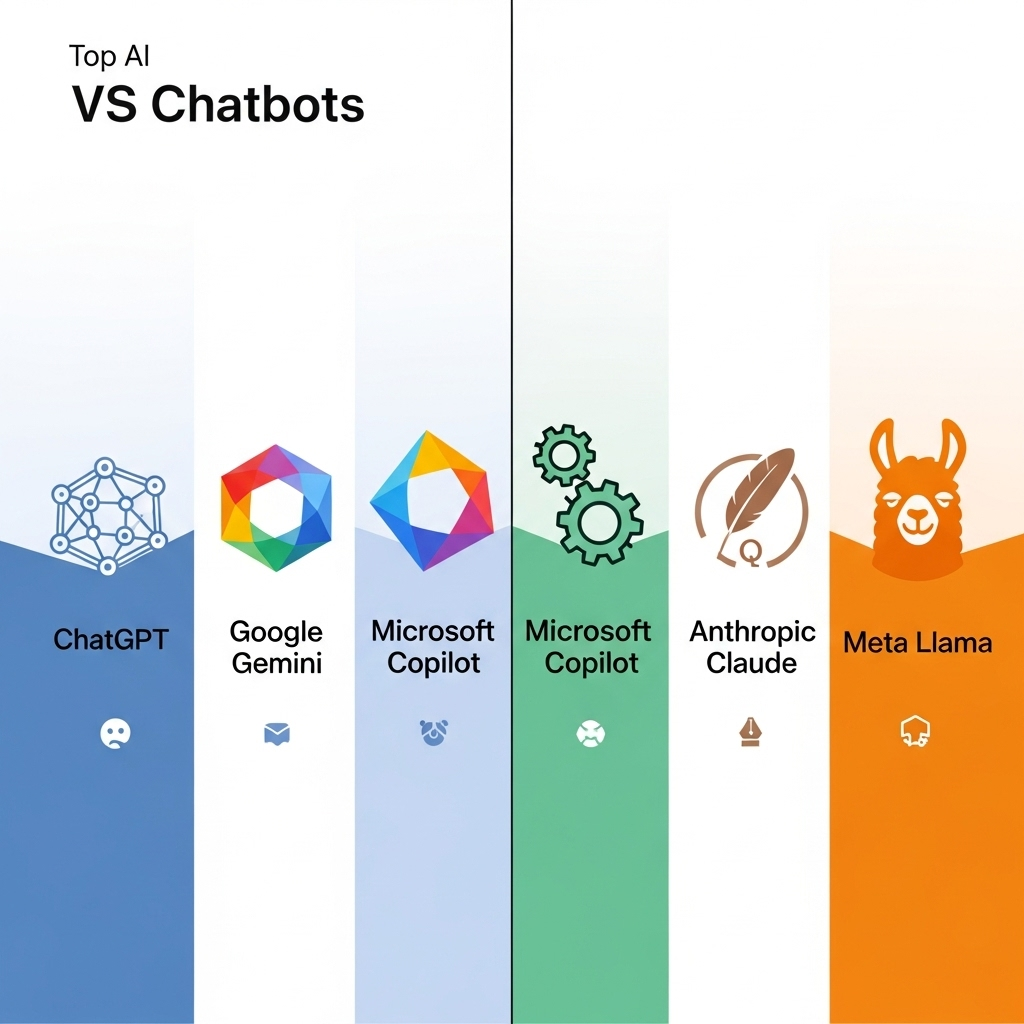Interested in ChatGPT competitors? You’re not alone. As chatbots become a bigger part of daily life, understanding your options matters more than ever. This article will guide you in plain language through what makes these AI tools popular, who the top players are, and how you can choose the best one for your needs.
1. What Are AI Chatbots and Why Are They Popular?
AI chatbots are computer programs designed to simulate conversation with humans. They can answer questions, help with simple tasks, or even provide entertainment. Many companies use chatbots to improve customer service or make information more accessible.

Their popularity has grown rapidly because they are available 24/7, don’t get tired, and continually improve thanks to machine learning. For most people, interacting with a chatbot feels surprisingly human-like, making it easier to ask for help without hesitation.
2. Understanding ChatGPT and Its Rise
ChatGPT, created by OpenAI, is perhaps the most famous example of an AI chatbot. Launched in late 2022, it quickly drew attention for its ability to hold realistic conversations, write essays, and even help create poetry. ChatGPT’s rise can be explained by how advanced, easy to use, and versatile it is. It learns from huge quantities of text on the internet, which helps it answer many types of questions. People use ChatGPT not just for fun but also to solve work problems, brainstorm ideas, or draft documents.
3. Top ChatGPT Competitors You Should Know About
While ChatGPT is widely known, several powerful alternatives exist. For example:
- Google Gemini: Previously known as Bard, this chatbot from Google is integrated with Google Search and offers up-to-date answers because it pulls information from the web in real time.
- Microsoft Copilot: Embedded in Microsoft products (formerly Bing Chat), Copilot can help you with searching, summarizing emails, and managing tasks, making it handy for office work.
- Anthropic Claude: Created to focus on safe and helpful interactions, Claude is appreciated for being more cautious in its answers, which can make it a good fit for sensitive topics.
- Meta Llama: Built by Meta (Facebook’s parent company), Llama is an open-source chatbot, meaning developers can study and improve its design more freely.
- Other regional or specialized chatbots: Around the world, new chatbots continue to emerge, including Yandex GPT in Russia and GPTSO for productivity-focused tasks.
Together, these ChatGPT competitors offer a wide range of features and styles.
4. How ChatGPT Competitors Compare in Everyday Use
It can be tough to know which chatbot suits your needs best. ChatGPT competitors have their pros and cons.

For instance, Google Gemini is great for up-to-date facts, while Microsoft Copilot stands out for integration with Office tools. Anthropic Claude tries to avoid harmful or biased answers as much as possible, which can provide peace of mind. Meanwhile, open-source options like Meta Llama are steadily being improved by community developers, making them adaptable and innovative. The best chatbot for you depends on your priorities — whether that’s accuracy, privacy, or simply the convenience of staying within an ecosystem you already use.
5. Choosing the Right AI Chatbot for Your Needs
You might wonder how to pick the right chatbot. Start by thinking about what you want to use it for. Are you looking for help with creative writing, organizing work, or just day-to-day questions? Some chatbots are especially strong in specific domains, such as programming help or summarizing news. Try out a few, since most ChatGPT competitors offer free versions to test. Remember to check how well a chatbot understands your language or dialect, as this can affect your experience. If you value reliable support, companies like Blanmo can provide tailored guidance and services to ensure you get the most out of AI chatbots as they evolve.
6. Are Free AI Chatbots as Good as Paid Options?
Most chatbots offer both free and paid versions. Free versions generally work well for simple conversations or basic searches. However, paid subscriptions often unlock advanced features: longer sessions, priority access during busy times, and even extra tools like file uploads or integration with personal apps. For most casual users, free versions are usually enough, but if you rely on a chatbot for work or more complex tasks, upgrading could be worthwhile. Each of the ChatGPT competitors boasts a different set of free and paid perks worth comparing.
7. Privacy and Trust: What to Consider When Using AI Chatbots
When choosing among ChatGPT competitors, privacy and trust should be key considerations. Many chatbots store conversations to learn and improve their performance, so it’s smart to check each provider’s privacy statement. For sensitive conversations, look for services that offer better data protection or encryption. It’s wise not to share personal details like social security numbers or passwords with any chatbot. For a balanced review of privacy concerns, the FTC provides resources to help consumers stay safe with new technologies.
8. The Future of Chatbots: What Comes Next?
The world of chatbots is changing fast. Every year, these tools get smarter, more accurate, and easier to use. Soon, you might see chatbots offering emotional support or tailored coaching.

In addition, new laws and ethical guidelines will shape how chatbots handle your information, aiming to keep users safer. To stay ahead of the curve, build a habit of reading trusted tech news or partnering with companies like Blanmo, who help make new technologies less intimidating and more useful.
